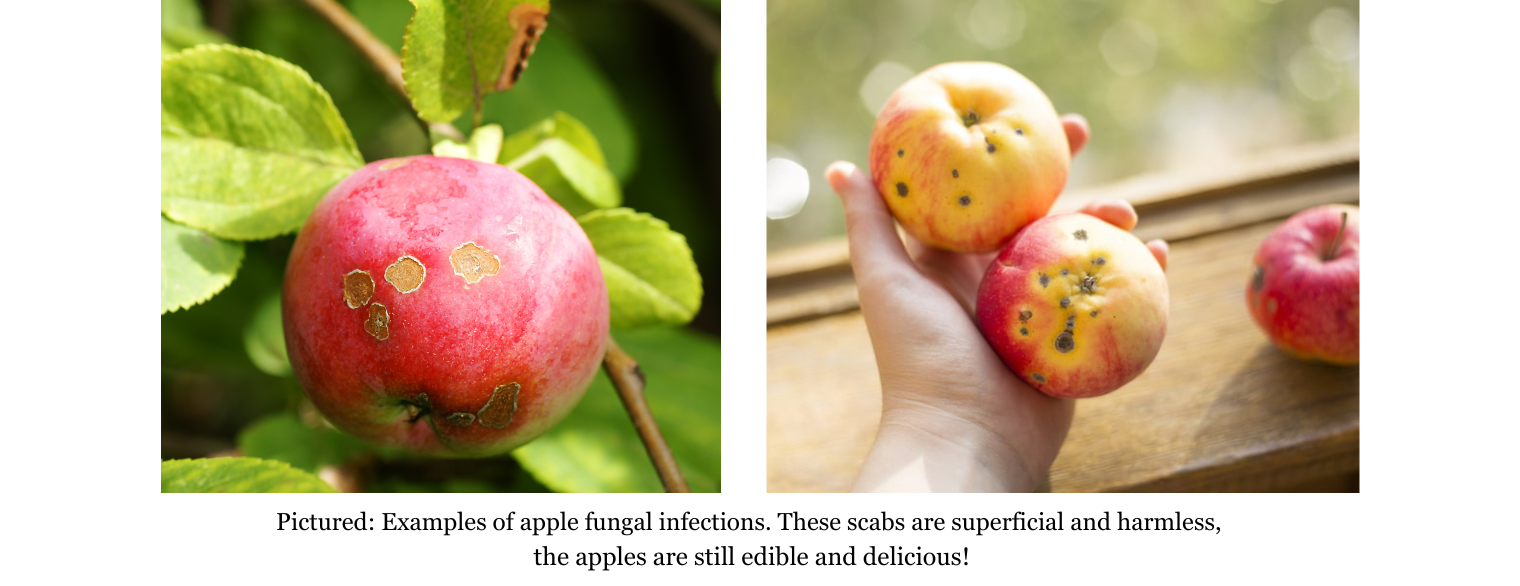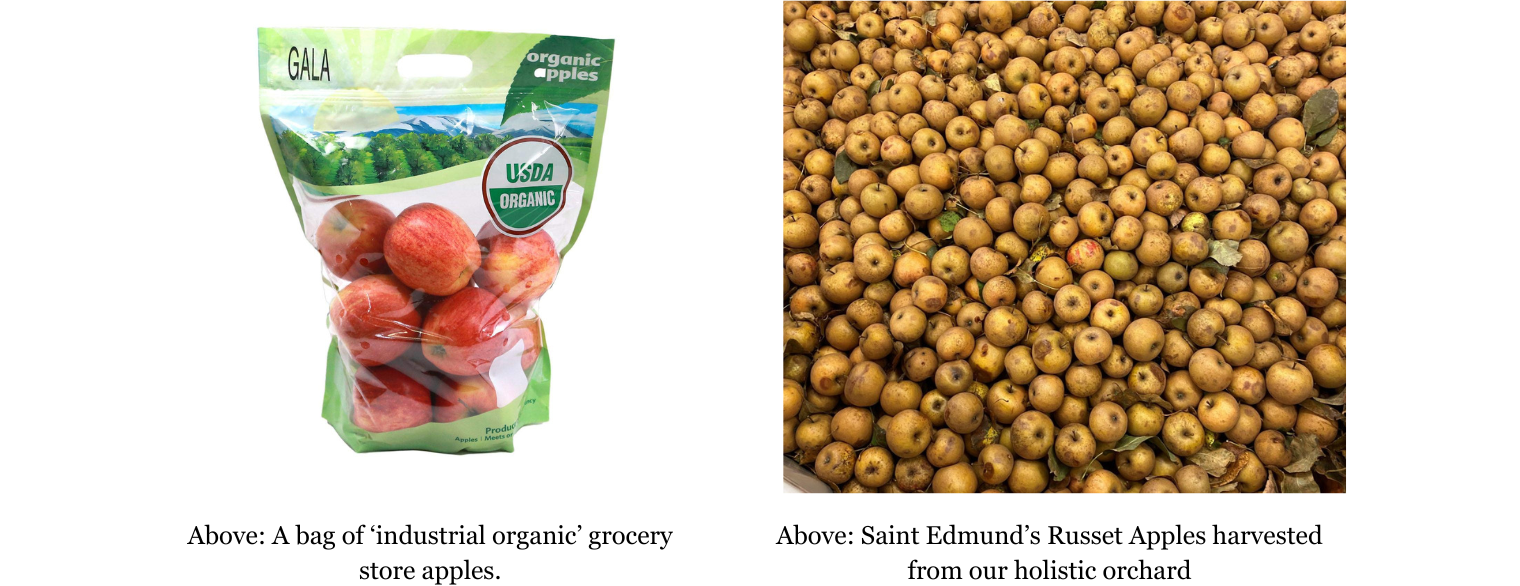Organic Apples: Not Good Enough
I am often asked if the apples in our ciders are organic…
My first reaction is ‘how much time do you have’? Organic has become the short-cut for ‘good apples’. But what are organic apples? What makes an apple organic ‘good’? Good for what? Your health? The health of orchard soil? The health of the orchard workers? The climate? In New England, and actually most of the East Coast and Mid-West, almost none of those things are true with regard to organic apples grown at a commercial scale.

Why? The rainfall and humidity in our region encourage fungal diseases like Apple Scab that leave blemishes on apple skins, and in extreme infection crack the fruit open so that rot can take hold. Eating apples, even when sold to a natural food store or at a farmers market, are required to be blemish-free by consumers (thank you to the ugly-fruit movement this is starting to change on the margins). The truth is – there is almost nothing an apple grower can do to prevent scab that doesn’t involve the use of fungicides, which kill indiscriminately all fungal life both beneficial and antagonistic. ‘Organic’ only means ‘non-synthetic’ in the eyes of the USDA National Organic Standards. This leaves would-be organic growers with sulfur and copper based compounds to insure grade-A fruit, which are just as toxic and harmful (sometimes more so) as their synthetic fungicide counterparts. So yes, organic apple producers don’t use conventional pesticides or GMO technology but can use ‘organic’ approved pesticides and fungicides. Organic apples for grocery stores are neither ‘non-spray’ nor pesticide-free.
Back in 1997, the non-profit Red Tomato was formed in the Northeast to figure out the best way to grow apples for eating that would be sustainable for the environment, fair and safe for workers, healthy and affordable for consumers, and financially viable for growers. The ‘Eco-Apple’ certification program was born. Read more about it here: https://redtomato.org/eco/
![]()
Organic fruit growing works better on the West Coast where the climate is drier, and most organic apples that you find in grocery stores come from Washington state for that reason. The environmental downside to how organic apples are grown there is the massive irrigation required to grow large beautiful fruit where there is not sufficient rainfall.
If you see a mass-market hard cider that is “certified organic” and produced in the East, you can bet that it is made from Northwestern apples pressed out of cold storage and trucked in a tanker across the US. Because of their huge growing and processing scale, that juice is still going to be cheaper than Eco-Apple certified fruit grown right here at home, and it’s ultimately worse for the planet.

The great thing about cider is that we don’t need apples to look beautiful, they are going to be pitched into the apple press! Nor do we want them to be picked under-ripe for long months of cold storage, because that means they never had the chance to develop to peak ripeness and flavor. In our own orchard we use holistic management practices that support the entire ecosystem of the orchard.
Yes this is organic, but it’s way beyond industrial organic. We spray, but we spray neem oil with activated microbes, and home-made compost teas from comfrey or horsetail. Check out more about holistic orcharding here: https://www.groworganicapples.com/
Our key grower partners are Eco-Apple certified, and all our partners are small local farms. When you choose Eden ciders, you are choosing better than organic, you’re choosing sustainable, holistic, and regenerative practices.

